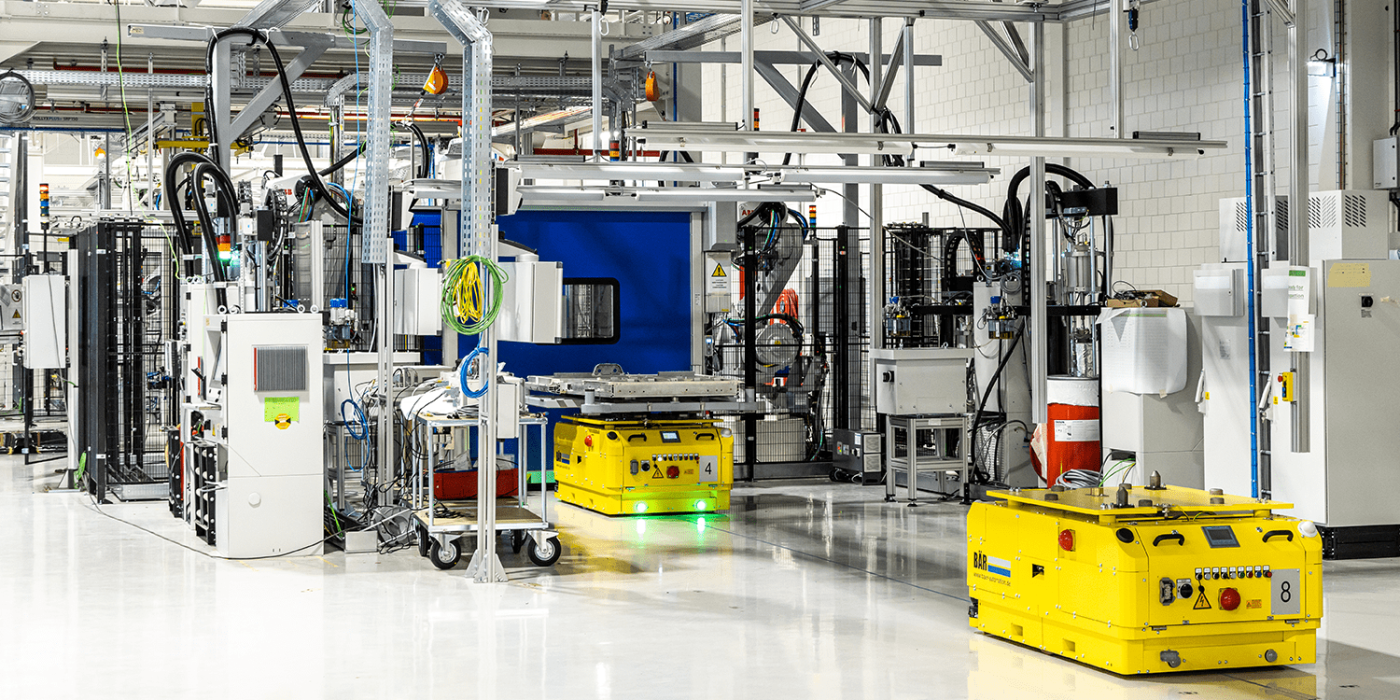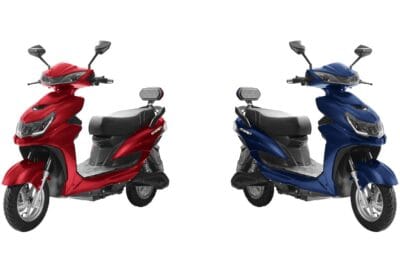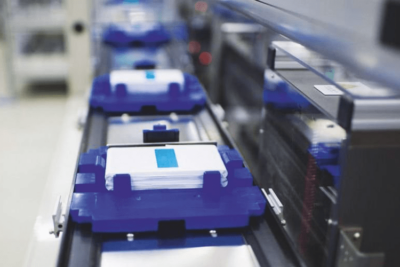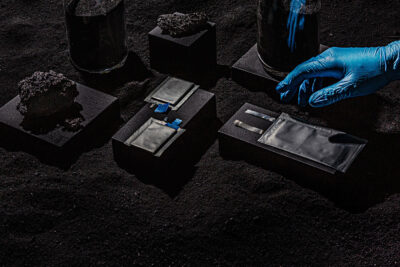Volvo launches battery assembly in Ghent
Volvo Cars has inaugurated a battery assembly line at its Belgian production site in Ghent. Batteries for the XC40 Recharge P8 will start rolling off assembly lines at the Ghent plant from March, while the production of the first electric Volvo is also scheduled to start in Ghent in the autumn.
In the newly opened battery assembly plant, Volvo will produce the battery packs for the fully electric XC40 along with the vehicle itself. The XC40 with internal combustion engines has been produced in Ghent since 2018, now also the PHEV version. The vehicles – including the future BEV – will all be assembled on the same line that the XC40 still shares with the V60. This is remarkable as both models are based on different kits – the XC40 on the smaller CMA platform, the V60 on the SPA platform.
The Belgian plant is to play a pioneering role in the announced electrification of Volvo’s model range. A battery assembly line is also expected to be set up at Volvo’s plant in South Carolina in the autumn – according to American media outlets, an electric version of the large XC90 SUV will be built at the Charleston plant from 2022. “From a factory point of view, battery assembly in Charleston will be similar to that in Ghent,” says Geer Bruyneel, head of worldwide production at Volvo Cars, speaking to German journalists at the Belgian event. “Everything we learn about the processes here will of course also influence Charleston.” Bruyneel did not comment on whether there would be differences in the product, or what these might be.
Nor does Volvo want to mention the production capacity of the battery assembly plant in Ghent – partly because it will change significantly in the coming months. The Swedish company’s aim is to avoid overproduction. “We are driving on sight,” says Stefan Fesser, plant manager in Ghent. “We want to be able to meet incoming customer demand, but we don’t want to build up excess capacity.”
What remains is a simple extrapolation: According to Volvo’s plans, 50 per cent of new cars sold in 2025 will be battery-electric cars. Since 185,000 XC40s were built in Ghent last year, we might assume that in the not too distant future, around 90,000 fully electric XC40s could be required, for which Volvo would also have to install 90,000 batteries. In order to cater to this kind of volume, the current assembly line, which was built by Thyssenkrupp, would probably have to be expanded. There is a little room for some expansion in the 5,000-square-meter hall that has been built on part of the employee parking lot since autumn 2018, but not much.
Plant manager Fesser is confident that they are well equipped for the construction of electric cars with the battery assembly line. “Two questions are important for us: How is the market developing? And how can we keep pace? We have now created the conditions for this,” says the German Volvo manager.
If battery production permits, the capacity of the plant can also be increased – currently around 225,000 cars per year are produced in Ghent, but more than 260,000 are possible. Last year alone, capacity was adjusted upwards three times due to the high demand for the XC40, according to Fesser – from the original 90,000 to 185,000 units per year.
CATL & LG Chem to supply cells
To achieve such quantities, sufficient battery cells must also be supplied. Volvo buys these pre-assembled in modules from LG Chem (from the factory in Poland) and from CATL. “With LG Chem we have only one cell supplier for the PHEV, but with LG and CATL we have two for the BEV,” says Bruyneel. “We have long-term supply contracts with both of them.” Asked about the delivery problems at Audi and Jaguar, he simply adds: “We will get the batteries we need.”
Bruyneel can perhaps feel confident that while the competition already needs larger quantities of battery cells to build their series-produced electric cars, Volvo will only slowly start battery assembly in Ghent next week. During the summer holidays, the production facilities in the vehicle plant will be converted for the manufacture of the XC40 Recharge, and the first electric cars are to be built from autumn onwards. Until then, a temporary shortage of cells will be less of a problem – and LG Chem should be able to keep production in Wroclaw running smoothly by the autumn.
Volvo takes aim for a “challenging” ramp-up phase
Since the XC40 is already being built in Ghent (as a PHEV already with electrified drive), the Global Head of Production is planning a rapid production ramp-up for the electric model in the fall. “The plant is prepared for this,” says Bruyneel. “In the ramp-up phase, which we have planned in a very challenging way, we have to look at the capacities in our supply chain rather than our own”.
In addition to the equipment, Volvo also had to prepare their employees for this expansion. According to Fesser, last year 200 new people were hired for the company’s electrification effort. A total of 6,500 people work for Volvo in Ghent, making the plant the largest industrial employer in Flanders. But the training courses were not only about the employees in battery assembly. “Because we manufacture combustion engines, PHEVs and soon the BEV on a single line, a lot of employees throughout the car’s production come into contact with the electrified models and naturally need to be trained for this,” says Fesser.
But even before the first XC40 Recharge has left the production line in series trim, there are already rumours of a spin-off. With reference to US dealers, media reports indicate that Volvo is planning a coupé version of the fully electric XC40 Recharge P8 with the C40. This is to be launched at the end of 2021.
Additionally, Bruyneel considers the advantage of a purely electric car production to be manageable. “The biggest difference would be in body production because the car’s underbody would be very different and we would, of course, have to adjust some of the work steps in final assembly,” says the Volvo production manager. “The concept of lean manufacturing, the plant layout and the layout of the individual workstations wouldn’t look much different.” At the same time, “Today’s PA is certainly not tomorrow’s PA.”
Reporting by Sebastian Schaal, Germany.





0 Comments